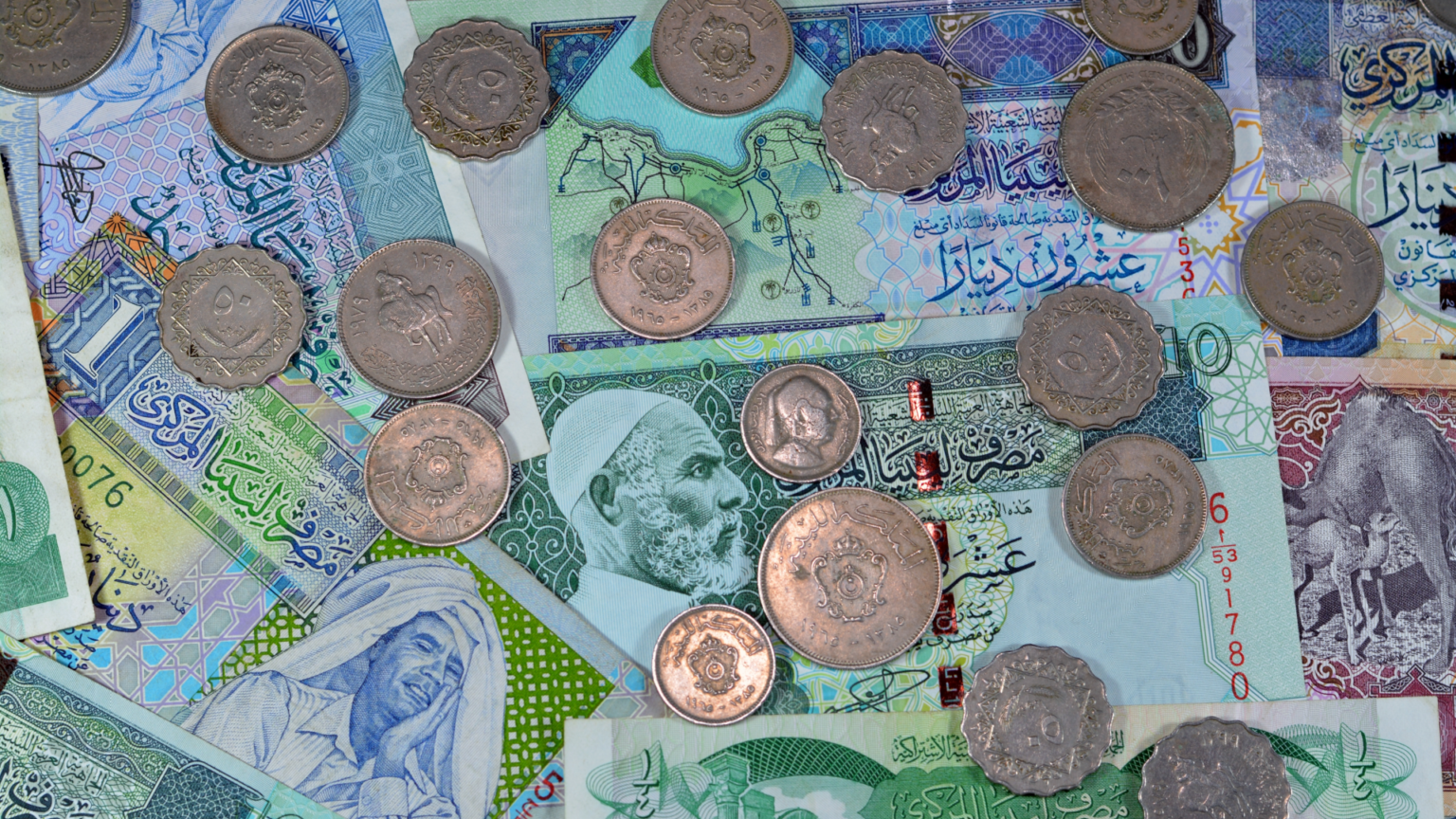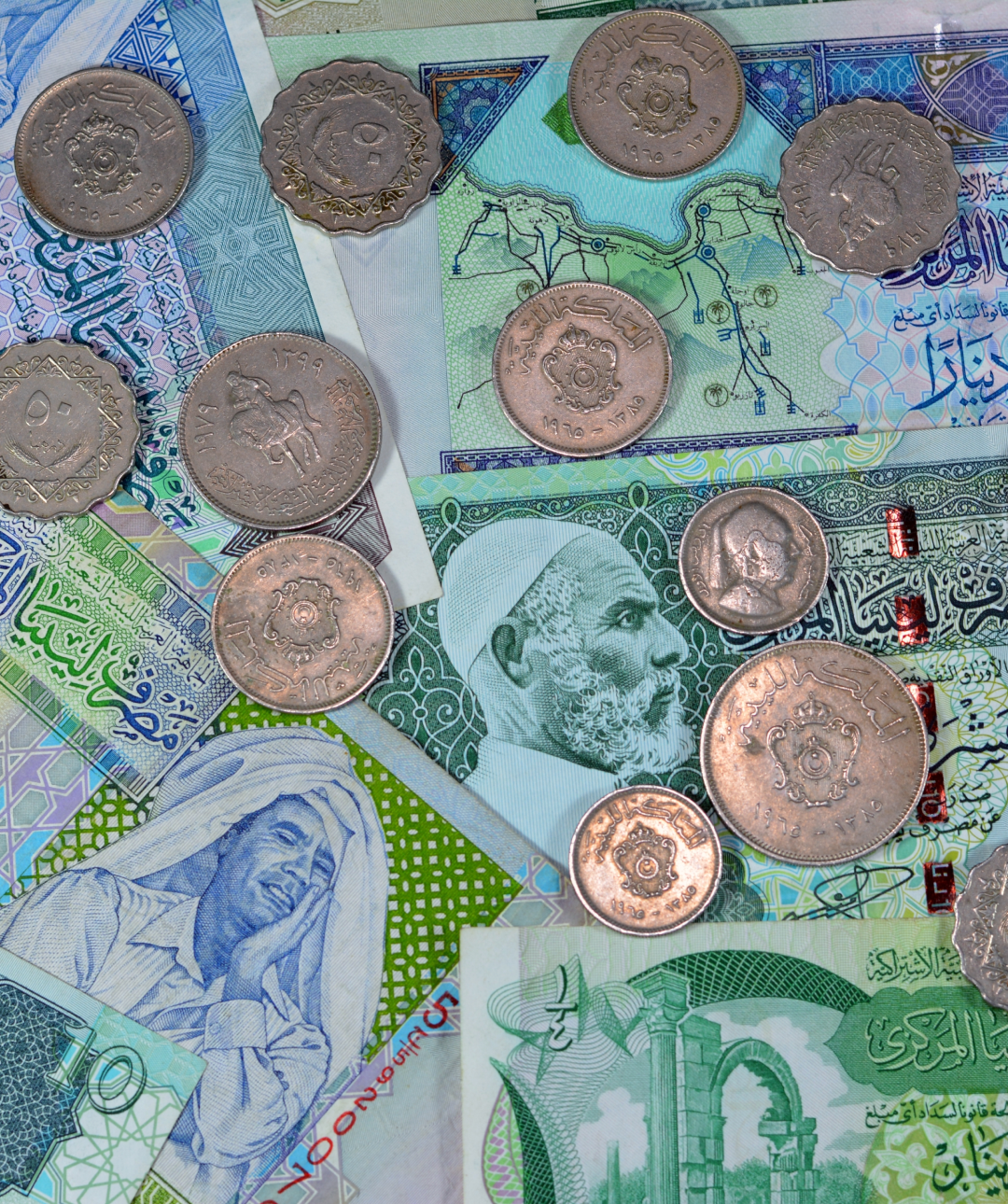Good morning, readers!
This week’s headlines expose the lengths authoritarian regimes go to perpetuate the financial power that preserves their rule, often going so far as to bend, break, and rewrite the rules of money itself.
In Nigeria, a make-up artist faces six months in prison for tossing around naira banknotes in a celebratory fashion during his wedding. The Nigerian regime claims this “disrespects” the currency, enforcing a 2007 law that criminalizes the public display or mishandling of cash. This instance offers a view into the absurdity of the monetary policies under which most of the world lives.
Meanwhile, in Northern Africa, Libya devalued its currency overnight. Libyans woke up to a 13.3% haircut on their savings as the autocratic regime shored up its finances at the expense of citizens’ financial security. While this is the first devaluation of the dinar in the last four years, it is unlikely to be the last.
In freedom tech news, Unocoin, India’s oldest digital asset exchange, integrated the Lightning Network, bringing millions of its users access to fast and low-cost Bitcoin payments. As financial repression increases in India, integrating Bitcoin scaling into financial platforms like Unocoin is a welcomed development at a pressing time.
Finally, we feature an article from journalist Roger Huang, who details the Bitcoin-driven relief efforts led by Burmese activist and HRF fellow Win Ko Ko Aung in the aftermath of a 7.7-magnitude earthquake. Amid civil war and immense state repression of finances, opposition, and media, Bitcoin offers an uncensorable way to fund relief efforts, protect donor privacy, and ensure that support reaches those affected. This is a great example of how Bitcoin can deliver aid in the most critical of times.
Now, let’s dive right in!

Global News
Nigeria | Artist Faces Six Months in Prison for Tossing Naira Currency
The Nigerian regime sentenced a makeup artist to six months in prison for tossing naira currency banknotes during his wedding celebration. While the practice is common, Nigerian officials enforce a 2007 law criminalizing the “spraying of, dancing, or marching on the naira.” Therefore, the regime claims this recent act “disrespects” one of the country’s most “important” symbols — the naira. Around the same time, authorities banned the song “Tell Your Papa” by artist Eedris Abdulkareem. The song criticizes President Tinubu and urges his son Seyi to tell him “people are dying” from regime-induced hunger and insecurity. These two cases expose a regime more obsessed with symbolic obedience than alleviating the struggles of a population crushed by inflation. Meanwhile, the country’s top officials, who have siphoned off much of the nation’s wealth, collapsed the currency (which has lost 70% of its value since de-pegging from the US dollar), and ignored the financial pleas of citizens, go unpunished.
Libya | Regime Devalues Currency for First Time in Four Years
Libya’s central bank devalued the “official” Libyan dinar by 13.3% overnight, its first devaluation in four years and a likely sign of more to come. The official exchange rate now sits at 5.5677 dinars per dollar, while the informal market rate hovers around 7.20. The gap between Libya’s official and informal market exchange rates makes imported goods more expensive for average citizens. This is because Libyans rely on the informal market rate to access foreign currency that is used to buy essential, imported goods like medicine, fuel, and food. This gives them less purchasing power than otherwise would be. The two-tiered exchange system also fuels corruption among regime officials, as those with access to official rates can exploit the spread for personal gain, deepening public frustration in a country already divided by dueling governments and weak public institutions.
Turkey | Injects Billions to Prop Up Collapsing Lira While Rewarding Police Repression
The Central Bank of Turkey injected $42 billion in foreign currency reserves to prop up the Turkish lira, which has plummeted to record lows. At the same time, protests erupted across the country following the politically motivated arrest of Istanbul Mayor Ekrem Imamoğlu. Now, the regime is rewarding police for violently suppressing demonstrators. Officers involved in the crackdown on protesters reportedly received 10,000 lira ($262) each in cash, funded by the same shrinking public funds. While Erdogan uses state funds to reward repression, a Turkish court rejected İmamoğlu’s appeal, underscoring a regime determined to silence dissent, dismantle democracy, and cling to power at any cost.
Syria | Economist Proposes “New” Currency to Solve Economic Woes
In Syria, economist George Khazzam is proposing to remove two zeros from the Syrian pound to mask the regime’s economic failure and escape hyperinflation. Additionally, Khazzam recommends reprinting all Syrian pound banknotes and limiting the issuance of higher denomination notes. Since 2011, the Syrian pound has plummeted from 50 to over 15,000 pounds per dollar as civil war, sweeping sanctions, and failed currency policies manifest throughout the country. In northern regions like Idlib and Aleppo, many have abandoned the pound entirely, turning to the Turkish lira for daily transactions. While it is also unstable, its use in northern Syria is driven by necessity. Across Syria, wages are crumbling, prices change hourly, and banking access is unreliable at best.
Pakistan | Mining Bitcoin With Surplus Electricity
Pakistan unveiled intentions to mine Bitcoin and run AI data centers using surplus electricity in a bid to address the country’s energy inefficiencies and drive economic growth in emerging technologies. Additionally, in a move that surprised many, the military-backed regime appointed Changpeng Zhao, the founder of digital asset exchange Binance, as a strategic adviser to help guide the country’s “cryptocurrency” and “blockchain” initiatives, policy, and education. At first glance, these steps suggest a shift toward innovation and modernization. But these policies come from the same regime that jails political opposition, censors and shuts down the Internet, and financially represses independent media. It remains unclear how these policies can benefit individual Pakistanis.
South Korea | 7-Eleven Accepting Discounted CBDC Payments During Pilot Phase
South Korea launched a nationwide pilot of its central bank digital currency (CBDC), enrolling 100,000 South Korean users. As part of the rollout, 7-Eleven will accept CBDC payments and offer a 10% discount on all products. Governments facing public skepticism regarding their CBDCs increasingly use similar incentive tactics to onboard users. For example, Nigeria discounts taxi fares to push its e-Naira CBDC, while Thailand is distributing its CBDC directly to citizens for free. While South Korea’s CBDC project aims to modernize payments, it is part of a broader push from countries, even democratic ones, to integrate state-controlled digital currencies into everyday transactions. A move that is diametrically opposed to individuals’ freedom, privacy, and human rights.
Recommended Content
How Bitcoin Is Used To Raise Funds In Myanmar For Earthquake Relief by Roger Huang
In the wake of a catastrophic 7.7-magnitude earthquake in Burma (Myanmar), journalist Roger Huang’s latest article for Forbes details how activists are using Bitcoin to deliver aid where traditional financial channels have failed. Amid civil war and immense state repression, Bitcoin offers an uncensorable way to fund relief efforts, protect donor privacy, and ensure that support reaches those on the ground. The piece highlights efforts by Burmese activist and HRF fellow Win Ko Ko Aung to route donations through Bitcoin, bypassing military-junta control and getting the funds directly to those affected. We encourage you to read the full article to understand how Bitcoin is fueling hope in the face of disaster.


Bitcoin News
Unocoin | Integrates Bitcoin’s Lightning Network
Unocoin, India’s oldest digital asset exchange, integrated the Lightning Network through Voltage, a Bitcoin and Lightning infrastructure company, bringing millions of Unocoin users access to fast and low-cost Bitcoin payments. This upgrade is critical for Indians seeking alternatives to a progressively repressive financial system. The Indian government is freezing political opposition bank accounts, granting tax authorities legal access to citizens’ private online data, and expanding its CBDC by integrating with incumbent fintech firms and government-built payment rails like UPI. While Unocoin is a centralized exchange that requires registration and holds assets on behalf of its users, integrating Lightning will afford users greater flexibility, autonomy, and privacy when managing their finances.
Phoenix Wallet | Resumes Operations in the US
Phoenix Wallet, an open-source and self-custodial Bitcoin Lightning wallet, officially resumed operations in the US following the release of the US Deputy Attorney General’s “Ending Regulation by Prosecution” memo. The move offers much-needed clarity for developers and operators of open-source software and reinforces the right to develop and use tools for self-custody and peer-to-peer transactions. “We are happy to make our products available again in the USA,” said ACINQ, the team behind Phoenix. This decision marks a win for activists and dissidents living in the US to use the same tools they might use in their home countries.
Blitz Wallet | Refines Ecash Functionality
Blitz Wallet, an open-source and self-custodial Bitcoin, Lightning, Liquid, and ecash wallet, released its latest beta version, bringing expanded ecash functionality. Ecash is a Bitcoin-backed digital money system that enables practical everyday payments on Bitcoin that are private by design (but users must trust mints to manage their funds). The latest Blitz update increases ecash limits, allowing users to set custom receive amounts and a maximum balance for ecash payments. Further, it expands manual swap options so users can routinely exchange their ecash for Bitcoin on Lightning, Liquid, or vice versa. Blitz also lets users spend their ecash balance to buy gift cards, access AI tools, and pay for VPN services all through the app — useful features for anyone living under tyranny.
Bitsacco | First Business Accepts Payments Directly into Savings Wallet
Bitsacco, a Bitcoin-powered alternative to Kenyan Savings and Credit Cooperative Organizations (SACCOs) and HRF grantee, just hit a major milestone: a Kenyan business is now accepting payments directly into its Personal Savings wallet on Bitsacco. This is the first instance of a Kenyan merchant choosing to save revenue in Bitcoin using Bitsacco’s community custody model. Letting businesses convert earnings into sound money through a familiar path unlocks new use cases for Bitcoin and forges novel avenues to financial freedom. In a region where inflation, banking restrictions, and undemocratic financial reforms erode economic autonomy, this kind of real-world usage shows how Bitcoin can support grassroots saving and financial inclusion.
BTCPay Server | Adds New Integrations, Plugins, and Features
BTCPay Server, an open-source, self-hosted Bitcoin payment processor, released its latest update, which includes new multisignature capabilities (where multiple private keys are used to access Bitcoin in a wallet), fee acceleration tools, and new integrations that can benefit nonprofits and activists operating under financial surveillance. The updated multisignature brings collaborative custody wallets and support for major hardware devices. Enhanced fee acceleration tools (like RBF and CPFP) help users rescue stuck transactions during periods of high network congestion. And finally, BTCPay Server added integrations with Shopify V2, Ghost, and ECWID. This strengthens its role as a self-hosted payment processor for individuals and nonprofits seeking financial independence and autonomy in regions where authoritarian rulers limit economic freedom.
Electrum | Merges Nostr Wallet Connect Plugin
Electrum, an open-source Bitcoin wallet, just merged software support for Nostr Wallet Connect (NWC), which will enable users to remotely control their Electrum wallet through a nostr plugin. More generally, NWC is a protocol that connects Bitcoin Lightning wallets to other applications like Nostr. This new plugin will let users authorize external apps and Nostr clients like Amethyst, Alby, and LNbits to initiate Lightning payments from their Electrum wallet, without needing to expose private keys or run their own node. By bridging Lightning with decentralized identity and messaging, Electrum’s support for NWC can empower journalists and individuals to interact with Bitcoin privately, flexibly, and independently.
Recommended Content
The Bitcoin Miner’s Guide to Total Control with Bitaxe by BTC Sessions
In this tutorial, Bitcoin Educator Ben Perrin (BTC Sessions) shows viewers how to set up their own Bitaxe, a small, affordable, open-source Bitcoin mining device supported in part by HRF’s Bitcoin Development Fund. He walks through the process of getting started, running your own Bitcoin node (a computer that runs the Bitcoin software), joining a mining pool, and receiving payouts through the Lightning Network. Tutorials like these are important because they make home mining more accessible, enabling even those living under tyranny to leverage freedom tech to participate in and secure the Bitcoin network. For activists, mining at home means gaining more control over how they earn, spend, and store their money, all without relying on centralized systems that can block or monitor them. Watch the full video to learn how to take full ownership of your Bitcoin mining setup.







